Character analysis Reading Comprehension Worksheets for Ages 5-8
5 filtered results
-
From - To
Boost young readers' skills with our Character Analysis Reading Comprehension Worksheets, designed specifically for ages 5-8. These engaging worksheets help children identify and analyze the traits, motivations, and changes in characters within a story. By focusing on character development, kids enhance their understanding of narratives and improve critical thinking. Each worksheet incorporates age-appropriate texts, interactive questions, and fun activities to make learning enjoyable and effective. Ideal for classroom use or at-home practice, our worksheets provide a foundation for lifelong reading comprehension proficiency. Discover a variety of resources to nurture your child's love for reading and comprehension mastery.
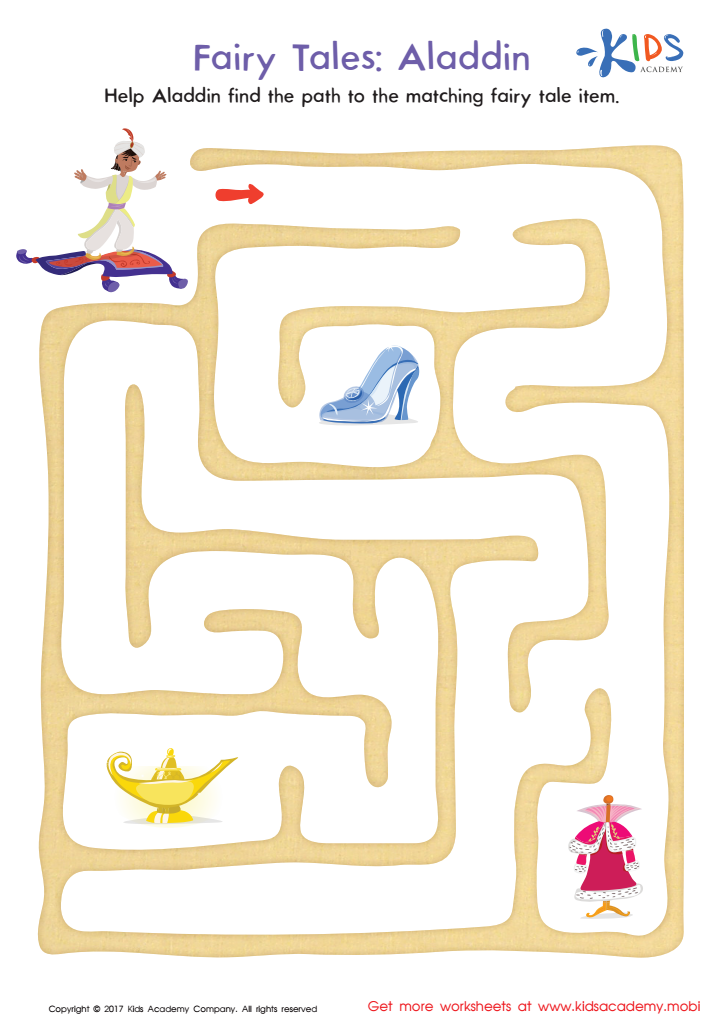

Fairy Tales Aladdin Printable
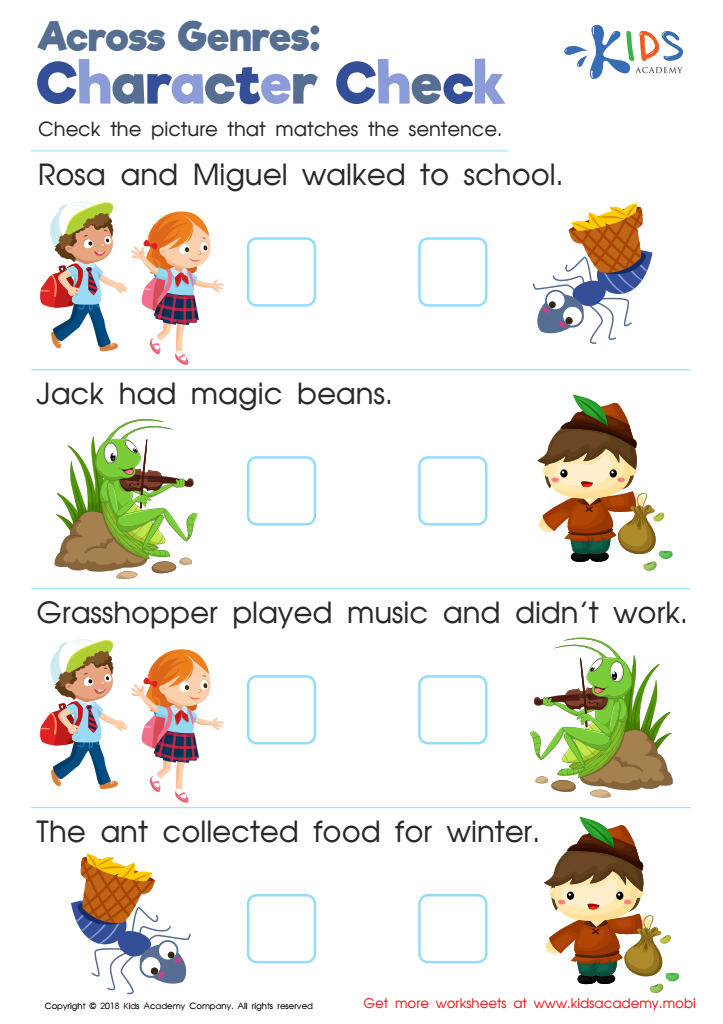

Across Genres: Character Check Worksheet
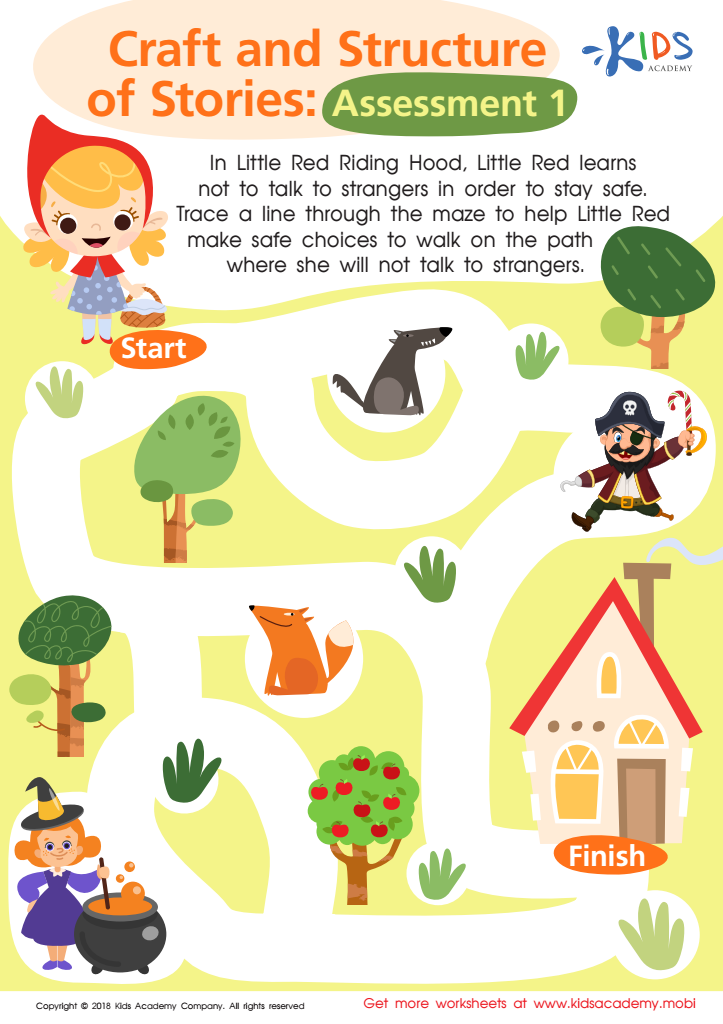

Craft and Structure of Stories: Assessment 1 Worksheet
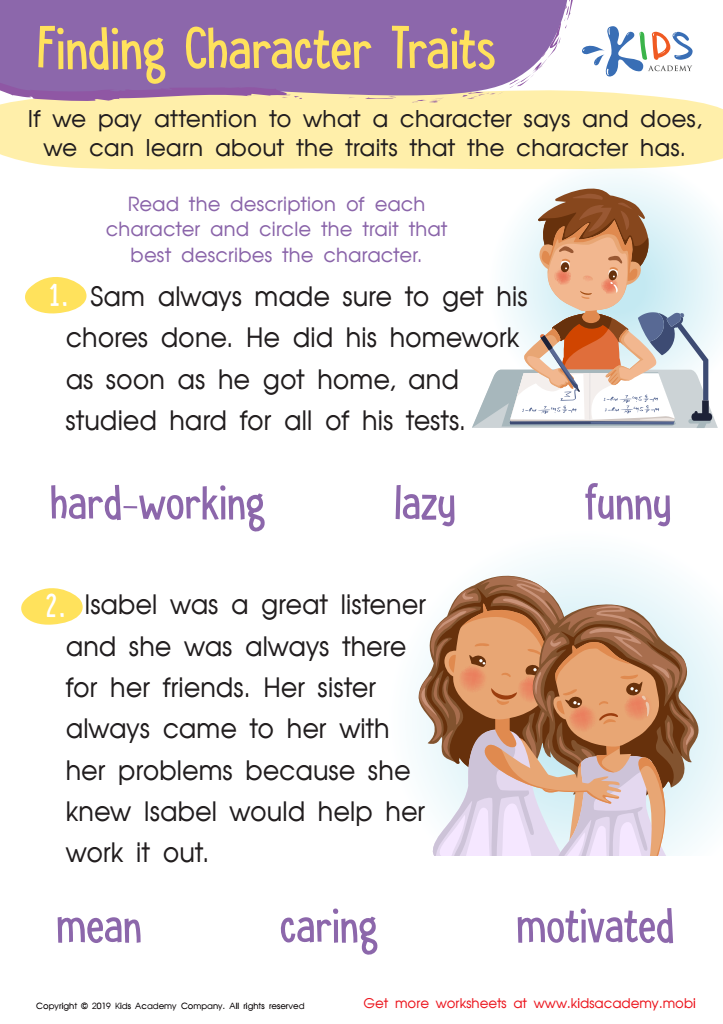

Finding Character Traits Worksheet
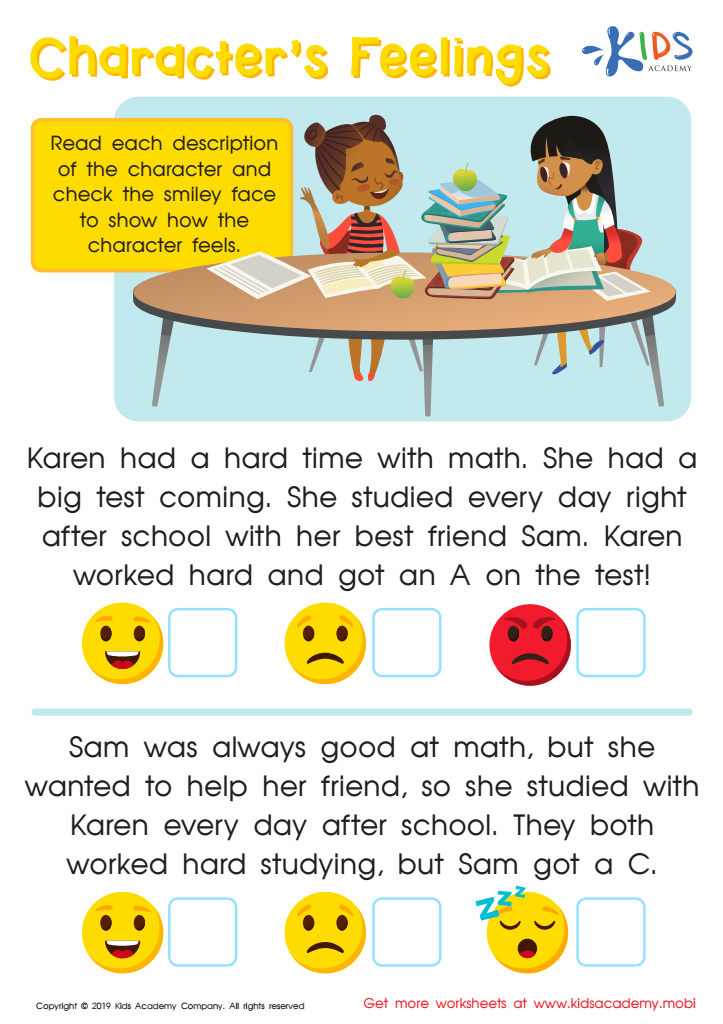

Character’s Feelings Worksheet
Parents and teachers should understand the importance of character analysis reading comprehension for children ages 5-8 because it lays the foundation for lifelong critical thinking and empathy. At these formative ages, young readers are not just learning how to read; they are learning how to pick up on nuances in stories, understand characters' motivations, and recognize different perspectives.
By teaching children to analyze characters, adults help them to develop deeper comprehension skills that go beyond surface-level reading. This enables children to draw connections between what they read and their own lives, enhancing their ability to understand complex social situations and developing their emotional intelligence. When children consider why a character might act a certain way or face particular challenges, they can start to apply that reasoning to real-life scenarios, fostering problem-solving skills and empathy.
Moreover, character analysis encourages kids to become more inquisitive and to pay attention to details. This attentiveness can enhance their academic work across other subjects and support their overall cognitive development. Ultimately, fostering these skills at an early age helps build a strong foundation for critical thinking and compassionate interaction, preparing children for success both in school and in their social lives.
 Assign to My Students
Assign to My Students





















